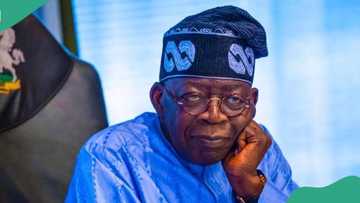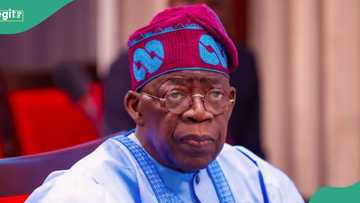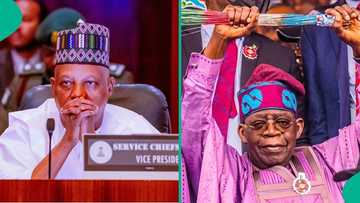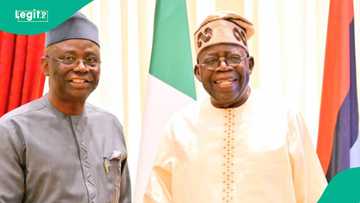Analyst Reacts to APC’s Wave of Defections, Aides’ Resignations: “Lagos Boys Taking Over Govt”
- Political expert, Dr. Olasupo Thompson, has warned that serial resignations from Tinubu’s camp indicate deepening rifts within APC leadership
- Speaking with Legit.ng, he noted Tinubu’s post-election appointments suggest a “Yorubanisation” shift, sidelining northern political expectations
- According to him, many defections to the APC are coerced, serving a broader strategy to crush opposition and dissent
Historian and political scientist, Dr. Olasupo Thompson, has warned that recent resignations from President Bola Tinubu’s camp signal deeper internal cracks that could define the administration’s future.
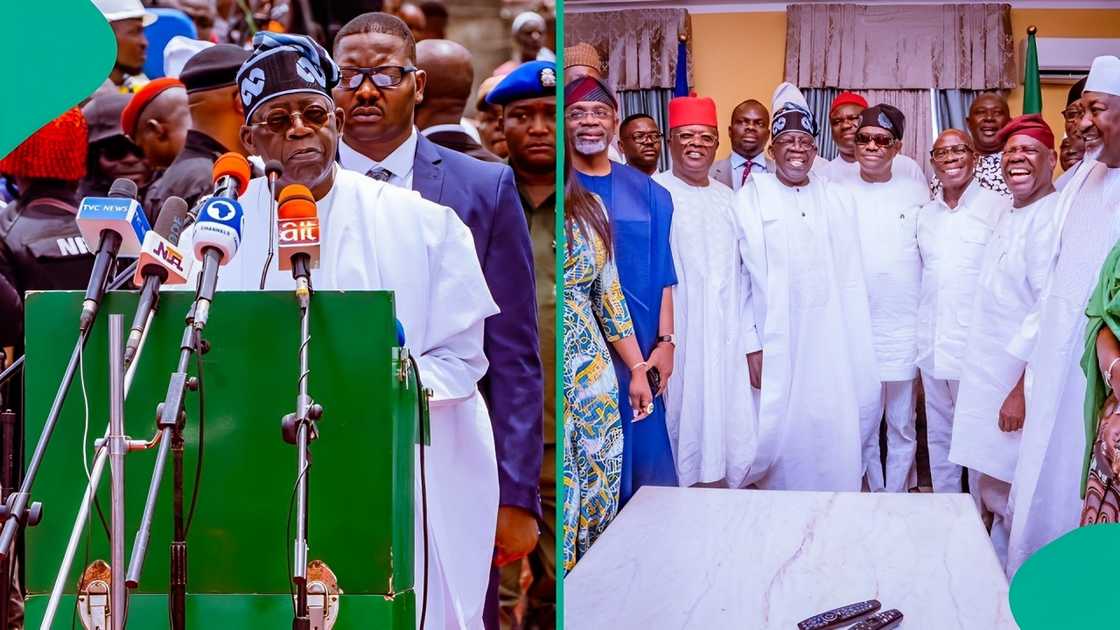
Source: Twitter
Offering critical insights in an exclusive conversation with Legit.ng, he described the trend as a reflection of “disgruntled elements” reacting to unmet expectations and shifting power dynamics within the ruling All Progressives Congress.
According to him, the timing and frequency of the resignations are far from coincidental.
The second high-profile resignation in weeks, that of Aliyu Audu, senior special assistant to the president on public affairs, follows the earlier exit of Dr. Hakeem Baba-Ahmed, special adviser on political matters to the president. The timing has raised questions about the direction of Tinubu’s government as it completes the halfway mark of its first term.
“The timing has several implications. First, it will give other disgruntled elements within the ruling party the opportunity to also know that they are not under bondage and that they can resign too,” he said.
By this, we are going to be witnessing more resignations in the future from the Bola Tinubu administration especially those who may want to realign with either their former party of unhappy or disgruntled allies who had suffered similar fate in the past like Alhaji Atiku, Mallam El Rufai etc. All these were members of APC who also worked against PDP’s Goodluck Jonathan
Alleged Yorubanisation replacing Buhari's legacy
Dr. Thompson explained that Tinubu’s rise to the presidency came with expectations, especially from the northern political elite, that he would maintain the power-sharing model established under former President Muhammadu Buhari.
“It must be noted that Bola Tinubu was not just a former governor of Lagos state but also a strong opponent to the erstwhile ruling party, the Peoples Democratic Party.”
“During the primaries and election, the factionalism played out when it was reported that Buhari had no preferred choice and that there would be a level playing ground for all. After Tinubu won the primary ticket, he campaigned all through the country especially the north that he was going to continue from where Buhari stopped.
In my opinion, this was to tickle the fancy and interest of the northerners who would have ordinarily preferred their own, Alhaji Atiku Abubakar ins spite of the ‘unspoken’ consocialization which is a power sharing between the north and south.
He argued that Tinubu’s campaign narrative, to "continue from where Buhari stopped," was designed to appeal to northern interests, but post-election appointments appear to have defied those expectations.
“No doubt that those who voted or mobilised votes for him in that era thought that by continuing from where Buhari stopped, he meant he would not only Fulanise or northernise the entire administration but also run a clientelist government where the northerners would benefit immensely and be given juicy positions like the immediate past president.”
“But they got him wrong! What do we have? There has been a kind of Yorubanisation agenda rather — and even within this ethnicisation, the Lagos boys, as I would call them, seem to be taking over the government.”
He pointed to the Office of the Chief of Staff, now occupied by a close ally of Tinubu, as an example of what he described as an unprecedented concentration of power.
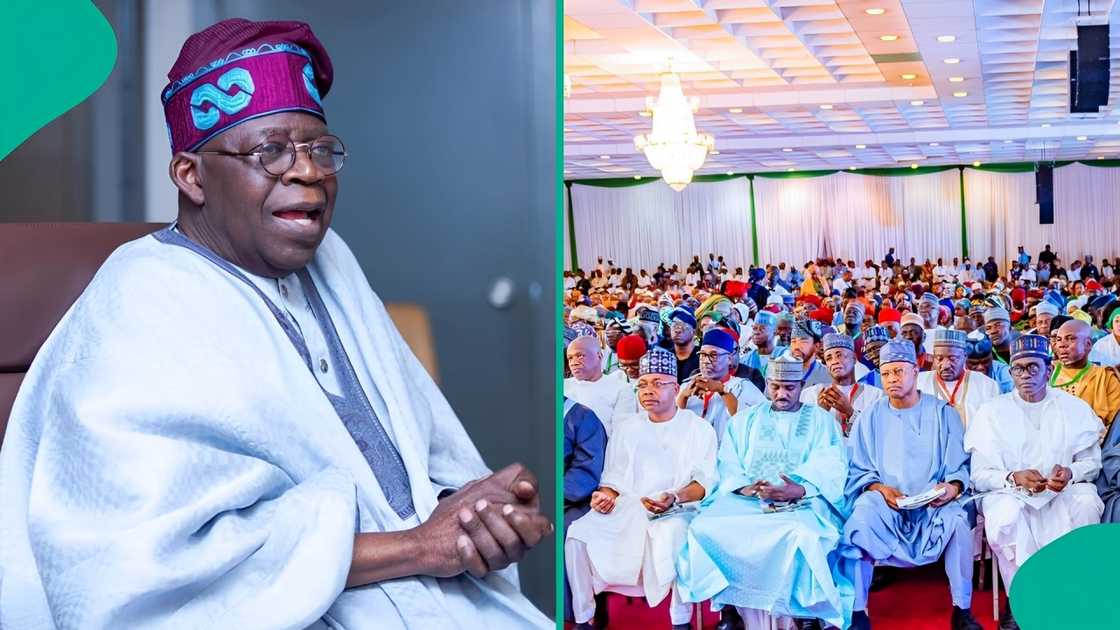
Source: Twitter
Coercion behind APC defections, historian alleges
Dr. Olasupo also warned that what the media calls the "Tinubu tsunami,” a wave of defections to the ruling party, may not be as organic as it appears:
“This so-called tsunami is not because the people decamping have the interest of the country at hand, but because they have been forced or coerced to do so.”
“Some of them have been given the assurances that no matter their unpopularity, they would be returned by all means, including using state machinery or institutions which have all been weakened — from the INEC, Police, EFCC to the Judiciary.”
According to him, a broader political strategy is unfolding that involves luring disillusioned politicians and suppressing internal dissent:
“It will now begin to bring out the rawness and realpolitik or crude politics or strategy of the APC in not only crushing oppositions but aggressively going after them on trumped-up charges. This is when the EFCC will begin its clamping down in order to either subdue dissidents within the party or bring in more oppositions with the allure of office, appointments and other perks.
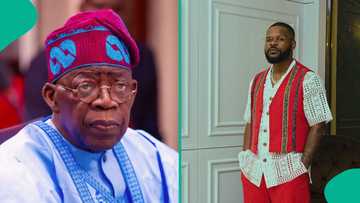
Read also
“Isn’t it too early to judge Emilokan?" Falz rates Tinubu’s first two Years, draws online debates
“Do not forget that there are so many ambassadorial offices yet unfilled and many other ministry, department, and agency positions open. Most of these positions would be freed up and filled next year, allowing for more opposition or busy-body elite to come and ganusi.”
The political scientist, who is researching a phenomenon he calls the "ganusi elite", said this rising class is shaping Nigeria’s political realignment as the 2027 election cycle approaches:
“In all, the timing and frequency of resignations is a reminder to the Tinubu-led APC that yes, he has not fulfilled his promise of continuing from where Buhari stopped.”
“And this is where I think he will base his campaign as he solicits the votes of the people whom he described brought him to power once again in the 2026 campaign period.”
Six APC governors allegedly back coalition talks
Meanwhile, Legit.ng reported that six APC governors are reportedly funding secret coalition talks aimed at building alliances ahead of the 2027 general elections.
Sources claim the governors are frustrated with internal party politics and are quietly meeting opposition figures to explore possible alignments for future political relevance.
Though identities remain undisclosed, the covert meetings suggest growing discontent within APC ranks and rising interest in reshaping Nigeria’s political landscape before 2027.
Source: Legit.ng

